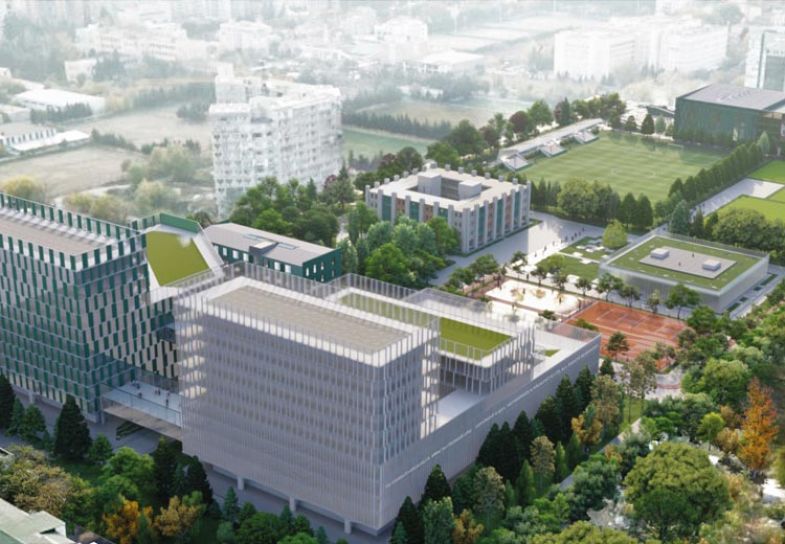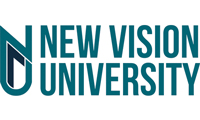
The not-for-profit institution’s commitment to societal engagement makes its graduates more employable and teaches real-world skills
Universities must meet the needs of society both now and in the future, says David Kereselidze, head of the academic board at New Vision University. The 10-year-old non-profit institution focuses on civic engagement and using its research and teaching to benefit people in Georgia and around the world.
“We combine public engagement with the teaching process, which is valuable for students because it matches their future job needs, and also for society at large,” says Kereselidze, who is a professor in private law.
The university has about 3,400 students and 270 faculty members, hailing from 90 countries, and its seven schools focus on politics and diplomacy, medicine, dentistry, law, business, IT, sports science, media and communications. A board of academics oversees the university and guides it in maintaining its civic commitments.
With a focus on spiral learning, students deepen their knowledge and capabilities by developing practical skills, Kereselidze says. Every loop of the spiral builds on the previous competencies and brings students closer to acquiring the skills they need for employment. Within the spiral curriculum, hands-on teaching and learning methods are used. For example, undergraduates assist in the legal aid clinic under the supervision of postgraduates and faculty. “We create an environment in which this teamwork brings them close to the workplace environment,” Kereselidze says.
By focusing on real-world problems, the university ensures that workplace-relevant skills are developed within the university curriculum. “We take a community-driven research approach,” Kereselidze explains. Each semester, civic and government leaders address students and faculty, explaining the problems they face and starting conversations that guide research projects and interests. Kereselidze says this approach teaches students to ask crucial questions, such as “What are the burning issues at the moment?”, “What are the real challenges?” and “What needs to be addressed?”
Kereselidze points to a presentation by the minister of health in Abkhazia, a Russian-occupied territory in northern Georgia. The region contains numerous hospitals, which are still administered by the Georgian government. The presentation brought together graduate and postgraduate students from the university’s law and medical schools to address challenges and find real-world solutions in a situation with many constraints and external factors.
Sometimes these social challenges lead the university to engage with or establish new companies. For example, by acknowledging the positive impact of affordable, high-quality healthcare, the university shaped its role as a healthcare provider. As a result, the university established a non-profit healthcare centre, the New Vision University Hospital, and a non-profit blood bank, “a marked departure from the for-profit blood donation model in the country”, Kereselidze says.
With so many nationalities represented among its students and staff, internationalisation is a fundamental pillar of New Vision University and is integral to its civic mission. “Our graduates, afterwards, return to their home countries and want to make an impact,” he explains, adding that there is a particular focus on access to affordable, quality education for underrepresented groups. According to an internal university survey, there are approximately 200 first-generation students and 300 students from minority backgrounds enrolled at the university. “Even if we can contribute to a very small extent and change the future of disadvantaged groups in other countries, it is very important.”
Find out more about New Vision University.
